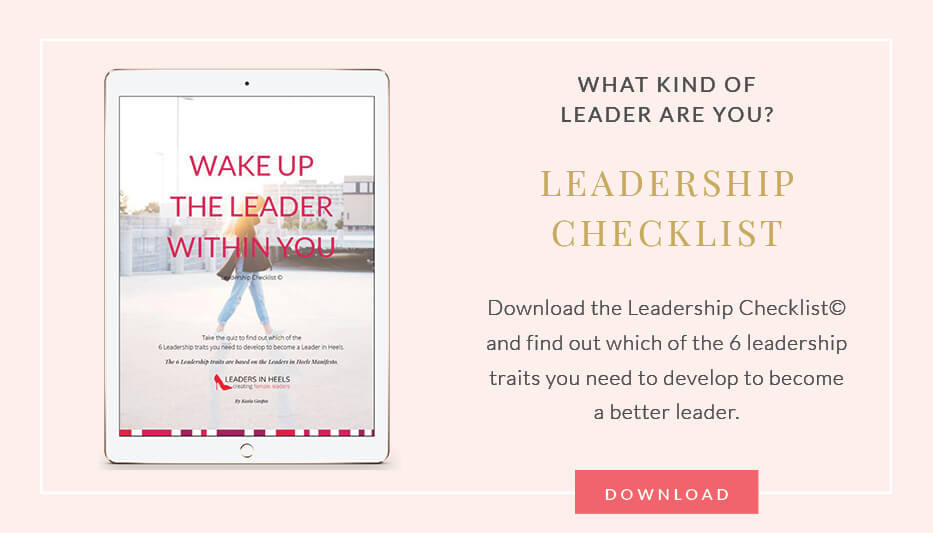Business lives or dies on the decisions you make and the attitudes you hold from the very beginning. All mindsets feed the ego. Business is a wild ride, with lots of ups and downs and unexpected turns.
The best workplaces represent a commitment by every person to becoming their best self. Starting with the founder, the alignment of personal and organisational values creates the compass for all decision making. When you move your ego to the side and place your best self forward, you create a value-based focus in the workplace.
Let me share with you 11 ways how to bypass the ego, and thrive in business today and into the future.
Command and control is buried
Most people associate leaders as those who rise to the top, who display a ‘take charge’ attitude and exude confidence. Command and control models may have worked in the past; however, the world has changed. Leaders with greater self-awareness recognise both their strengths and limitations, rather than handing down their own judgements and ignoring feedback from others.
An inclusive culture doesn’t support the one-hit wonder or the Robin Hood mentality. Leaders understand the limitations of their ego and include others in critical decision making and give away all the rewards.
Invest in the humanity of others
The egoless leader recognizes how to play to their strengths, identifies the gaps in their skill set and confidently hires people capable of closing those gaps. They relinquish the need to control everything, and invest in the humanity of others. They care for their people to deliver immeasurable benefits for their teams and organisation.
Big ideas, tiny egos
De-emphasising where an idea comes from and moving from the ‘I’ to the ‘we’, creates an environment where there is no room for prima donnas. A ‘we’ leader will solicit ideas from all levels, encouraging people who experiement with different ideas and championing unsuccessful efforts. A phenomenal leader thrives from the accomplishment of the team and strives for the greater good of the organisation.
Learn from the fighters
Humility goes hand-in-hand with an egoless leader. Sam Sheridan, the author of A Fighters Heart, interviewed the best fighters in the world. Consistently, messages of humility were identified as being the most important attribute for a great fighter. They put their ego aside, outworked their opponents, always looked for the gaps in their game and constantly pushed their limits.
A big ego makes you afraid to push, to try new things, to open up and grow. Ego makes you complacent and stagnant in your thinking. The epic fighters have an inner fierceness, a focus that belies their calm appearance and a no-excuses drive to do whatever it takes to succeed. A sincere servitude attitude, laser-focused drive and a stoic commitment to a work ethic drives results.
Have courageous conversations
When we avoid dealing with an issue, people can become destructive and business is hindered. When it comes to having a challenging conversation, leave your ego at the door. Park the emotion to the side and approach the conversation with an intent to heal the situation. Our intention and choices dictate the nature of the conversation. Your ability to recognise reality and move beyond the ego will move yourself and your people into endless possibility. Business requires courageous conversations.
Confidence is quiet, insecurities are loud
When the ego is at the forefront, arrogance can kill opportunities. The loud egocentric leader who doesn’t permit dialogue, judges people who share their experiences, and lacks the emotional intelligence, kills dreams quickly.
Close-minded people are less likely to discover new ideas, as they disengage from learning from others or forming connections. False assumptions are made, team work is devalued, and humility gets thrown out the window.
First impressions are everlasting and sometimes a second chance is not an option. Actions will always be stronger than words and when you open the door to growth, people and business thrive.
Admit what you don’t know
The first step towards gaining greater knowledge is admitting what you do not know. It means leaving the ego behind and exercising humility to addressing complex problems. When you become more comfortable with the notion that there is nothing wrong with a leader gathering their team, identifying strengths and limitations, then reaching out to those with a better appreciation of a situation regardless of their profession or walk of life is part of the fabric of the business.
An enviroment of collaboration
When egos are left behind, an environment of collaboration will become the platform of your culture. The leader sets the tone and when it turns into a culture, the belief is infused throughout the organisation. When you come in with an open mind and focus on mission success, you will foster a culture of collaboration. This will permeate the tapestry of the organisation. Success is based on relationships and bringing people graciously along, not on personal advancement. Recognise that it takes committed team effort to work towards viable solutions.
Heavy lifting to build the muscle
Leaders need to be present when it counts. When leaders worry only about themselves and show up for the ‘performance’, their ego is driving the ship. Valued leaders are there before and long after the event. They are engaged with their team, not all the time, but are there for the heavy lifting.
Leaving ego behind has different meanings to different people. It takes a humble leader to admit what they do not know to lead our organisation’s most precious treasure – our daughters, sons, mothers and fathers. Egos bent on personal glory are not what we need in 21st century. People deserve putting the team first and egos last.
Wake-up call
In leadership, if you think everyone else is the problem, it usually means you’re the problem. Resistance is painful, but commitment to facing it the problem empowering. Power struggles and dysfunctional behavior are ubiquitous in businesses of all sizes. When blaming, avoiding conflict, over-controlling, and assuming ill-intent run amok, people stop looking ahead and bury their head in the sand instead. Conflict laden environments undermine employee happiness. Dysfunction is an automatic response to stress or fear. In fact, dysfunction is learned, predictable and most importactly – changeable.
The key for individuals, teams or organisations to break the cycle is to ask quality questions about the choices they make in certain situations. What did you do to help? What do you know for sure? What could you do next to add value? What would you be doing to help if you didn’t have your story? What are you committing to do next? Looking outward and considering the vulnerabilities of others creates the space for you to emphasise with how they feel.
It starts with you
To break through the turf wars in your organization, it starts with you. Working on yourself is the highest act of leadership. Alone, you can make good decisions. Collaboratively, you envision greater opportunities. Checking your ego means abandoning pursuit of approval, attention, and appreciation and then channeling your energy to awakening and leading with the ultimate version of you.
Angela Kambouris is a highly-valued leadership coach and business leader having spent over 20 years in the field of vulnerability and trauma. She is super-passionate about unlocking human potential to deliver extraordinary results and has spoken on stages and worked with thousands of people in the areas of self-development, leadership, mindset, human behavior and business. She has master-minded with leaders and expert authorities in personal development and business all over the world.

Originally published at leadersinheels.com


